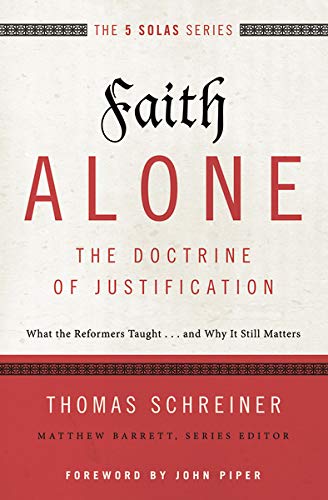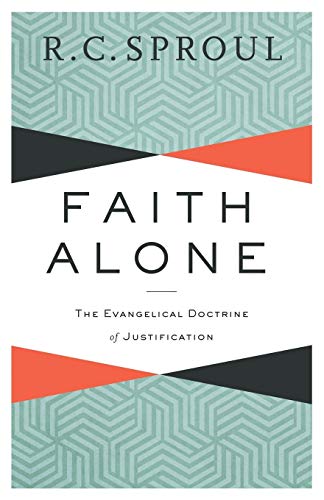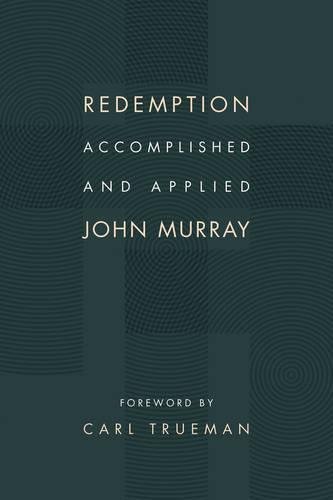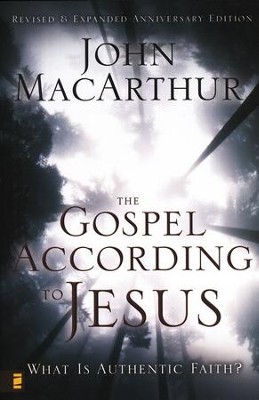Quotes about Faith-Justification
Our peace and confidence are to be found not in our empirical holiness, not in our progress toward perfection, but in the alien righteousness of Jesus Christ that covers our sinfulness and alone makes us acceptable before a holy God.
To be justified means more than to be declared “not guilty.” It actually means to be declared righteous before God. It means God has imputed or charged the guilt of our sin to His Son, Jesus Christ, and has imputed or credited Christ’s righteousness to us.
Transforming Grace, NavPress, 1991, p. 36. Used by permission of NavPress – www.navpress.com. All rights reserved. Get this book!
As we come to Christ, then, empty-handed, claiming no merit of our own, but clinging by faith to His blood and righteousness, we are justified. We pass immediately from a state of condemnation and spiritual death to a state of pardon, acceptance, and the sure hope of eternal life. Our sins are blotted out, and we are “clothed” with the righteousness of Jesus Christ. In our standing before God, we will never be more righteous, even in heaven, than we were the day we trusted Christ, or we are now. Obviously in our daily experience we fall far short of the perfect righteousness God requires. But because He has imputed to us the perfect righteousness of His Son, He now sees us as being just as righteous as Christ Himself.
Copied from The Gospel for Real Life by Jerry Bridges, © 2002, p. 107. Used by permission of NavPress – www.navpress.com. All rights reserved. Get this book!
Indeed this is one of the greatest mysteries in the world – namely, that a righteousness that resides with a Person in heaven should justify me, a sinner on earth.
A Puritan Golden Treasury, compiled by I.D.E. Thomas, by permission of Banner of Truth, Carlisle, PA. 2000, p. 121.
We are justified not without works yet not through works, since in our sharing in Christ, which justifies us, [progressive] sanctification is just as much included as [imputed] righteousness.
Justification is the main hinge on which salvation turns.
It is entirely by the intervention of Christ’s righteousness that we obtain justification before God. This is equivalent to saying that man is not just in himself, but that the righteousness of Christ is communicated to him by imputation, while he is strictly deserving of punishment.
As the act of healing through the eyes of the Israelites and the brazen serpent went together; so, in the act of justifying, these two, faith and Christ, have a mutual relation, and must always concur- faith as the action which apprehendeth, Christ as the object which is apprehended; so that neither the passion of Christ saveth without faith, nor doth faith help unless it be in Christ, its object.
A Puritan Golden Treasury, compiled by I.D.E. Thomas, by permission of Banner of Truth, Carlisle, PA. 2000, p. 104.
Faith justifies the person, and works justify his faith.
A Puritan Golden Treasury, compiled by I.D.E. Thomas, by permission of Banner of Truth, Carlisle, PA. 2000, p. 127.
Consider diligently these words, without works, by faith only, freely we receive remission of our sins. What can be spoken more plainly, than to say, that freely without works, by faith only, we obtain remission of our sins?
Because all men be sinners and offenders against God, and breakers of His law and commandments, therefore can no man by His own acts, works, and deeds (seem they never so good) be justified, and made righteous before God: But every man of necessity is constrained to seek for another righteousness or justification, to be received at God’s own hands, that is to say, the forgiveness of his sins and trespasses, in such things as he hath offended. And this justification or righteousness, which we so receive of God’s mercy and Christ’s merits, embraced by faith, is taken, accepted, and allowed of God, for our perfect and full justification.
[Christians] look away from themselves to Christ. They believe that God has loved them from eternity past. They believe that the payment of Christ on the cross for sins was for them. They find Christ irresistible, and following Him the greatest privilege of all. They have faith in Christ and what He has done for them. They trust Christ, looking outside of themselves to Him alone.
A Three-legged Stool: All Side of God’s Salvation Process, Christian Communicators Worldwide, www.CCWtoday.org. Used by Permission.
In the past, God had left sins unpunished. He could conceivably be accused of overlooking sin since He had not required punishment for it. Now, however, He has put forth Jesus. This proves that God is just (His wrath required the sacrifice) and that He is the justifier of those who have faith in Jesus (His love provided the sacrifice for them).
Christian Theology, Baker, 1998, p. 828. Get this book!
In the Bible the verb “justify” means “to count righteous” not “to make righteous.”
Precisely because we are justified in Him – that is, in His justification – our justification is also final and irreversible. Indeed we can be so bold as to say that we are as fully justified before God as our Lord Jesus is. We are as finally justified as our Lord Jesus is. We are as irreversibly justified as our Lord Jesus is. The only justification we have – our only righteousness – is that of the Lord Jesus. We are justified with His justification.
Sinclair B. Ferguson Assured by God, ed. Burk Parsons, P&R, 2006, p. 91. Used by Permission.
Christ became a curse for sinners. We become blessed in Christ (Galatians 3:13). He “sealed my pardon with His blood” by bearing our guilt and punishment. He grounds our final righteousness before God by His own perfect obedience. Consequently, justification not only deals with past guilt, but also secures for us a complete and final (or eschatological, to use the technical term) righteousness before God. This is what it means to be justified by faith.
How dangerous it is to join anything of our own to the righteousness of Christ, in pursuit of justification before God! Jesus Christ will never endure this; it reflects upon His work dishonorably. He will be all, or none, in our justification. If He has finished the work, what need is there of our additions? And if not, to what purpose are they? Can we finish that which Christ Himself could not complete? Did He finish the work, and will He ever divide the glory and praise of it with us? No, no; Christ is no half-Savior. It is a hard thing to bring proud hearts to rest upon Christ for righteousness. God humbles the proud by calling sinners wholly from their own righteousness to Christ for their justification.
A.H. Strong uses the analogy of the coupling. The coupling joins a train of cars to a locomotive. The coupling has no power in itself. It cannot move a single car an inch. All the power is in the locomotive. But the coupling is the link by which the power of the locomotive is transmitted to the cars. Faith has no power in itself; it is not a ground of salvation; it is not a good work. It is merely that by which all the goodness and grace and glory of Christ comes to the sinner.
But why is faith the means of justification? Simply because it is the action of union with Jesus Christ. Faith is our coming to Him, our trusting Him, our resting in Him. The moment we are united to Him, we are immediately endowed with all that He has secured for us. We are immediately justified before we have done a single good deed, because we are His and He is God’s. Just as a very poor woman is a very poor woman until the very moment that she marries a wealthy man. But at the moment that she becomes his wife, she becomes a wealthy woman. It is by means of her acceptance that she becomes a wealthy woman, but her acceptance does not make her a wealthy woman; it is her husband’s wealth that makes her so. So faith does not justify; Christ justifies. But faith is the act of union with Christ.
Justification has a positive and a negative element. It consists at once in the removal of guilt and the imputation, or granting, of righteousness. It rescues the sinner as a brand from the burning and at the same time gives him a title to Heaven. If it failed to do either of these, it would fail to do anything. For man, as a sinner against God, must have that enormous guilt somehow removed. But, at the same time, if he had the guilt removed, he would still be devoid of positive righteousness and with no title to Heaven and would also be certain to fall again into sin and condemnation. If Christ only cancelled out guilt, He would merely return the sinner to Adam’s original state without Adam’s original perfection of nature. There must be the “double cure.”
Justification is an act of God’s free grace, wherein He pardons all our sins and accepts us as righteous in His sight, only for the righteousness of Christ imputed unto us, and received by faith alone.
The Reformation doctrine of justification helps us to see that our salvation is the work of Christ for us. It also delivers us from a life of doubt and fear that causes us to wonder how God could possibly love sinners like us. It shows us that we have peace with God objectively because Christ has satisfied the demands of God for us, and it shows us subjectively because we can know confidently that by faith in Christ we are right with God.
We constantly want to justify ourselves before God, to be good enough without Christ. But God does not want us to trust in our goodness. He does not want us to make up for our past sins through present obedience. He does not want us to think that we are good enough to go to heaven by comparing ourselves to the Hitlers and Stalins of the world. Comparisons are useless when it comes to establishing righteousness before God. God crucified His one and only Son for our justification, and He wants us to trust in Him alone. When it comes to being justified, faith plus anything else is quicksand. The only ground for right standing before God is Christ Jesus grabbed ahold of by faith.
Justification by Jay Harvey taken from Don’t Call it a Comeback, edited by Kevin DeYoung, copyright 2011, Crossway Books, a division of Good News Publishers, Wheaton Illinois 60187, www.crosswaybooks.org, p. 101.
Because we are justified solely because of the righteousness of Christ, our role in justification is not to obey but to have faith in Christ… When we seek to justify ourselves by human effort of any kind, we undermine the sufficiency of Christ’s atoning work. Only justification by faith alone preserves the honor and glory of what Jesus did on the cross.
Justification by Jay Harvey taken from Don’t Call it a Comeback, edited by Kevin DeYoung, copyright 2011, Crossway Books, a division of Good News Publishers, Wheaton Illinois 60187, www.crosswaybooks.org, p. 100.
Christ’s righteousness is so imputed to believers that their justification is not merely the act of a sovereign dispensing with law but the act of a judge declaring the law to be satisfied.
In Christianity, the moment we believe, God imputes Christ’s perfect performance to us as if it were our own, and adopts us into His family. In other words, God can say to us just as He once said to Christ, “You are my Son, whom I love; with you I am well pleased.”
Pride wants to earn divine acceptance; humility simply believes it.
Our justification means not only that our sins are forgiven and that we have been declared to be righteous by God Himself, not merely that we were righteous at the moment when we believed, but permanently righteous. For justification means this also, that we are given by God the positive righteousness of His own Son, the Lord Jesus Christ.
Spiritual Depression – Its Causes and its Cures, 1965, p. 74, Used by Permission from Elizabeth Catherwood (daughter). Get this book!
Only a fraction of the present body of professing Christians are solidly appropriating the justifying work of Christ in their lives… In their day-to-day existence they rely on their sanctification for justification… Few know enough to start each day with a thoroughgoing stand upon Luther’s platform: you are accepted, looking outward in faith and claiming the wholly alien righteousness of Christ as the only ground for acceptance, relaxing in that quality of trust which will produce increasing sanctification as faith is active in love and gratitude.
The most damnable and pernicious heresy that has ever plagued the mind of man was the idea that somehow he could make himself good enough to deserve to live with an all-holy God.
Our faith in Christ does not free us from works, but from the false opinions concerning works; that is, from the foolish presumption that justification is acquired through works.
At last, by the mercy of God, meditating day and night, I gave heed to the context of the words, namely, “In it the righteousness of God is revealed, as it is written, ‘He who through faith is righteous shall live.’” There I began to understand that the righteousness of God is that by which the righteous lives by a gift of God, namely by faith. And this is the meaning: the righteousness of God is revealed in the gospel, namely, the passive righteousness with which merciful God justifies us by faith, as it is written, “He who through faith is righteous shall live.” Here I felt that I was altogether born again and had entered paradise itself through open gates.
When the article of justification has fallen, everything has fallen… This is the chief article from which all other doctrines have flowed… It alone begets, nourishes, builds, preserves, and defends the church of God; and without it the church of God cannot exist for one hour. [It is] the master and prince, the lord and ruler, and the judge over all kinds of doctrines.
Now the article of justification, which is our sole defense, not only against all the force and craft of man, but also against the gates of hell, is this: that by faith only in Christ, and without works, we are pronounced righteous and saved.
It ought to be the primary goal of every Christian to put aside confidence in works and grow stronger in the belief that we are saved by faith alone. Through this faith the Christian should increase in knowledge not of works but of Christ Jesus and the benefits of his death and resurrection.
Faith is man’s response to God’s elective purpose. God’s choice of men is election; men’s choice of God is faith. In election God gives His promises, and by faith men receive them.
Jesus healed many people who didn’t believe. He healed many without faith. He never saved any without faith, never will.
This article originally appeared (https://www.gty.org/library/sermons-library/42-114/a-profile-of-a-christian-messenger-part-2) at www.gty.org. © 1969-2008. Grace to You. All rights reserved. Used by permission.
No sin a believer can commit – past, present or future – can be held against him, since the penalty was paid by Christ and righteousness was imputed to the believer. And no sin will ever reverse this divine legal decision.
Study Bible Notes, Romans 8:1. www.gty.org. © 1969-2008. Grace to You. All rights reserved.
Justification is… a completed fact for the believer; it is not an ongoing process.
What Will Heaven be Like taken from The Glory of Heaven by John MacArthur, copyright 1996, Crossway Books, a division of Good News Publishers, Wheaton Illinois, 60187, www.crosswaybooks.org, page 74.
Justification by faith is an answer to the greatest personal question ever asked by a human soul: “How shall I be right with God? How do I stand in God’s sight? With what favor does he look upon me?” There are those, I admit, who never raise that question. There are those who are concerned with the question of their standing before men but never with the question of their standing before God. There are those who are interested in what “people say” but not in the question of what God says. Such men, however, are not those who move the world. They are apt to go with the current. They are apt to do as others do. They are not the heroes who change the destinies of the race. The beginning of true nobility comes when a man ceases to be interested in the judgment of men and becomes interested in the judgment of God.
There is something inexpressibly pleasing to a justified mind to know that God has all the honor in our salvation, and we have none; to know that God’s honor is not violated, but on the contrary, shines more illustrious; to know that God’s law is not injured, but magnified and made honorable; to know that we are safe, and God has all the glory.
The faith by which we are justified is faith. Faith is like a channel through which the benefits of Christ flow to us. We are not justified on account of faith; we are justified through faith. It is the work of Christ, not our faith, which is the foundation of justification. Faith itself is a gift of God.
A man pardoned, and justified by faith in Christ, though he may, sometimes doth, fall into foul sins, yet they never prevail so far as to reverse pardon, and reduce to a state of non-justification (William Greenhill).
A Puritan Golden Treasury, compiled by I.D.E. Thomas, by permission of Banner of Truth, Carlisle, PA. 2000, p. 111.
The truth is that, though we were justified by faith alone, the faith that justifies is never alone [it always produces fruit, “good works,”…a transformed life].
[It is] not that faith is accepted by God in lieu of righteousness as an equivalent for righteousness, else would faith be a meritorious thing, but that faith is the recipient of that righteousness by which we are justified.
Gleanings in Genesis, Moody Press, 1950, p. 167.
Get this book!
This is the rock where we stand when the dark clouds gather and the floods lick at our feet: justification is by grace alone (not mixed with our merit), through faith alone (not mixed with our works) on the basis of Christ alone (not mingling his righteousness with ours), to the glory of God alone (not ours).
Faith Alone and the Fight for Joy taken from When the Darkness Will Not Lift by John Piper, 2006, Crossway Books, a division of Good News Publishers, Wheaton Illinois 60187, www.crosswaybooks.org. p. 16.
Justification goes beyond forgiveness. Not only are we forgiven because of Christ, but God also declares us righteous because of Christ. God requires two things of us: punishment for our sins and perfection in our lives. Our sins must be punished, and our lives must be righteous. But we cannot bear our own punishment (Ps. 49:7-8), and we cannot provide our own righteousness. “None is righteous; no, not one” (Rom. 3:10). Therefore, God, out of His immeasurable love for us, provided His own Son to do both. Christ bears our punishment, and Christ performs our righteousness. And when we receive Christ (John 1:12), all of His punishment and all of His righteousness is counted as ours (Rom. 4:4-6; 5:1, 19; 8:1; 10:4; 2 Cor. 5:21; Phil. 3:8-9).
This Momentary Marriage – A Parable of Permanence, Desiring God Foundation, 2008, p. 46, www.DesiringGod.org.
This is why the Bible teaches that faith alone in Christ alone is the only way to salvation from sin. Faith is the anti-work. It’s the realization that there is nothing you can do but trust in what has been done for you in the life, death, and resurrection of Jesus. Faith is the realization that God’s pleasure in you will never be based upon your performance for Him. Instead, God’s pleasure in you will always be based upon Christ’s performance for you.
Taken from Follow Me by David Platt. Copyright © 2013 by David Platt. Used by permission. Website: Radical.net. Page 60.
Justification is an act. It is not a work, or a series of acts. It is not progressive. The weakest believer and the strongest saint are alike equally justified. Justification admits no degrees. A man is either wholly justified or wholly condemned in the sight of God.
He must cast away all pride and high thoughts, and conceit of his own goodness. He must be content to go to heaven as a poor sinner saved only by free grace, and owing all to the merit and righteousness of another… He must be willing to give up all trust in his own morality, respectability, praying, Bible-reading, church-going, and sacrament-receiving, and to trust in nothing but Jesus Christ.
I hold firmly that the justification of a believer is a finished, perfect, and complete work; and that the weakest saint, though he may not know and feel it, is as completely justified as the strongest.
We are today accepted in the Beloved, today absolved from sin, today acquitted at the bar of God… We are now pardoned; even now are our sins put away; even now we stand in the sight of God accepted, as though we had never been guilty. “There is therefore now no condemnation to them which are in Christ Jesus.” There is not a sin in the Book of God, even now, against one of His people. Who dares to lay anything to their charge? There is neither speck, nor spot, nor wrinkle, nor any such thing remaining upon any one believer in the matter of justification in the sight of the Judge of all the earth.
Any church which puts in the place of justification by faith in Christ another method of salvation is a harlot church.
When God accepts a sinner, He is, in fact, only accepting Christ. He looks into the sinner’s eyes, and He sees His own dear Son’s image there, and He takes him in.
Justification is not mere forgiveness, though it involves this, yet it is also the positive crediting of righteousness.
Justification is through faith, not on account of faith.
God does not justify us because we are worthy, but by justifying us make us worthy.
A Puritan Golden Treasury, compiled by I.D.E. Thomas, by permission of Banner of Truth, Carlisle, PA. 2000, p. 162.
God freely justifies the persons whom he effectually calls. He does this, not by infusing righteousness into them but by pardoning their sins and by accounting them, and accepting them as righteous. This He does for Christ’s sake alone and not for anything wrought in them or done by them. The righteousness which is imputed to them, that is, reckoned to their account, is neither their faith nor the act of believing nor any obedience to the gospel which they have rendered, but Christ’s obedience alone. Christ’s one obedience is twofold – His active obedience rendered to the entire divine law, and His passive obedience rendered in his death.
Justification is an act of God’s grace wherein He pardons all our sins and accepts us as righteous in His sight only for the righteousness of Christ imputed to us and received by faith alone.
Recommended Books




































